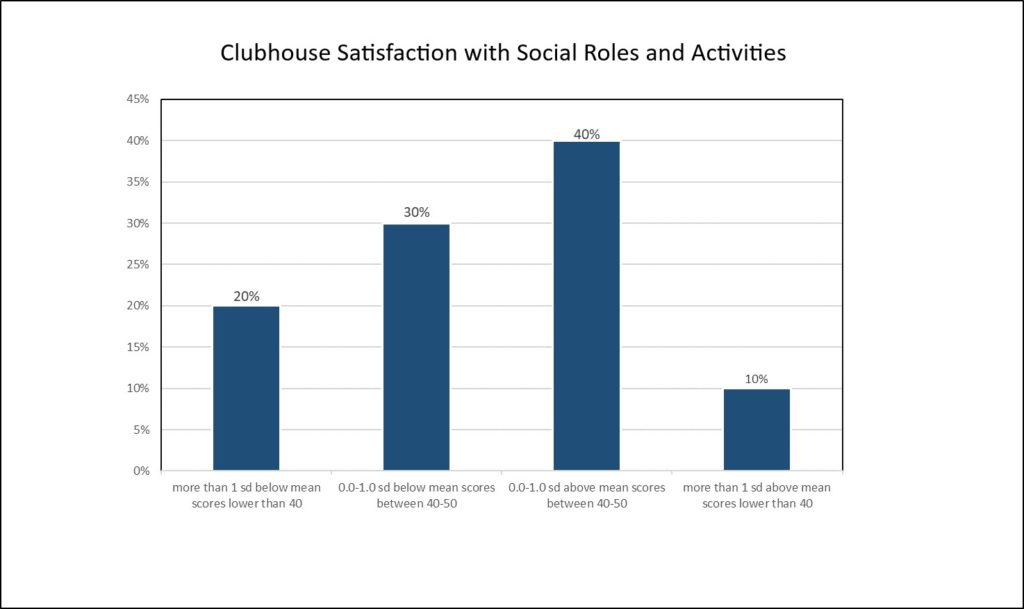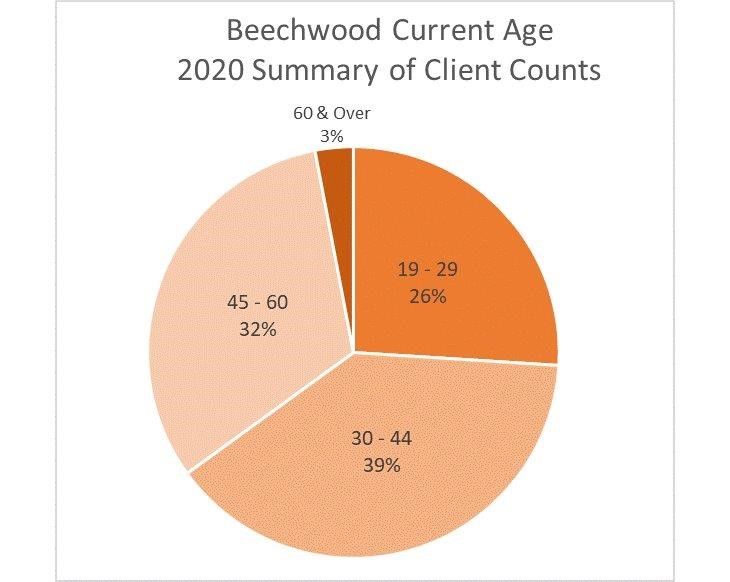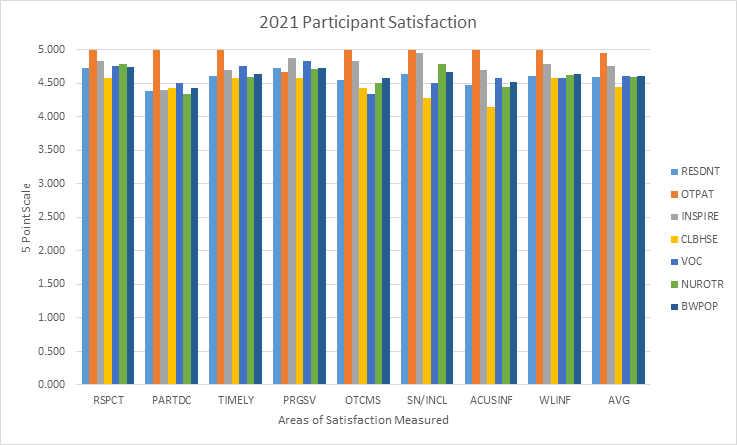Our Mission
Beechwood NeuroRehab ensures that individuals with brain injury are able to engage in productive and satisfying life roles. We accomplish this guiding principle through comprehensive rehabilitation therapies and individualized, supported plans for living. Beechwood NeuroRehab recognized and respects the needs, desires and rights of those we serve, their families and funding representatives, as we strive to fulfill their expectations for high quality brain rehabilitation and life-ling living programs. We use innovative treatment concepts, applied technology, and evidence-based research to help each individual live a fulfilling life.
Characteristics of Persons Served
Beechwood NeuroRehab served a total of 130 participants by the end of Fiscal Year 2021, a 1% decrease from the previous period. Approximately 73% are served in Beechwood NeuroRehab’s Community Residences, and 27% are non-residential clients who live in their own homes in the community; all participants receive a mix of NeuroRehab Therapies, Structured Day, and Vocational Programs. Beechwood NeuroRehab has 26% of its persons served in the 19-29 years of age bracket, compared to 19% for our peer post-acute benchmarking providers. The numbers in this age bracket are slowly starting to increase due to increases in public funding as this group has been identify by national prevalence as a higher risk age group. Beechwood NeuroRehab is similar to our peer post-acute benchmarking providers in the 30-44 years of age bracket (39%, compared with benchmark providers’ 36%) as well as the 45-60 age bracket (32%, compared with benchmark providers’ 36%). Adding in the older adults, 35% of people served by Beechwood are over 45, compared to the 45% over 45 for benchmarking providers. This is a recent change in trends for Beechwood as in the past over 45 was predominantly a higher percentage over benchmarking providers.
Beechwood NeuroRehab utilizes the Mayo-Portland Adaptability Inventory, 4th Edition (MPAI-4) to evaluate program effectiveness, by comparing aggregated participant scores for Abilities, Adjustment, and Participation to aggregated data from other peer programs. For participants served in long term, residential programs, the MPAI-4 is best utilized to show stability, and/or a lack of decline. Comparing the Beechwood NeuroRehab Residential population to the Benchmark Residential providers for the same time period, the change scores are also not significant. Benchmark Residential showed slight improvement with Participation and both Beechwood and the Benchmark Residential providers showed slight improvement with Adjustment.
2020-2021 Clubhouse Outcomes
Outcomes of Clubhouse are evaluated using the National Institute of Health (NIH) developed Patient Reported Outcome Measurement System (PROMIS), Satisfaction with Social Roles and Activities scale. This is compared with the national norms for other adults with disabilities, to determine how the Beechwood NeuroRehab population compares in terms of standard deviation from the mean. This year’s data shows that equal Members rated their satisfaction with ability to participate as above the mean (50%) compared with those rating below the mean (50%).

2020-2021 Satisfaction Survey
The data from our 2021 satisfaction surveys depicted our Stakeholders overall find great value in the programs and services provided by Beechwood Neuro-Rehab. Potential Raw Ratings ranged from Never (1) through Always (5). Overall averages between four and five indicated Beechwood NeuroRehab continues to provide services of high quality and our services are valued by those Stakeholders who participated in our 2021 survey.
(RSPT = Respect, PARTDC = Participation in Decision Making, TIMELY = Timeliness of Communication; PRGSV = Program & Support Services; OTCMS = Outcomes Achieved; SN/INCL = Sensitivity to inclusion; ACUIM = Accuracy in Information Shared; RSINX = Results Achieved vs Initial Expectations; RESIDENT = Resident; OTPAT = Outpatient; INSPIRE = Inspire Program; CLBHSE = In Club House Program; VOC = In a Vocational Program; NUROTR = Participates in Neuro-therapies).





